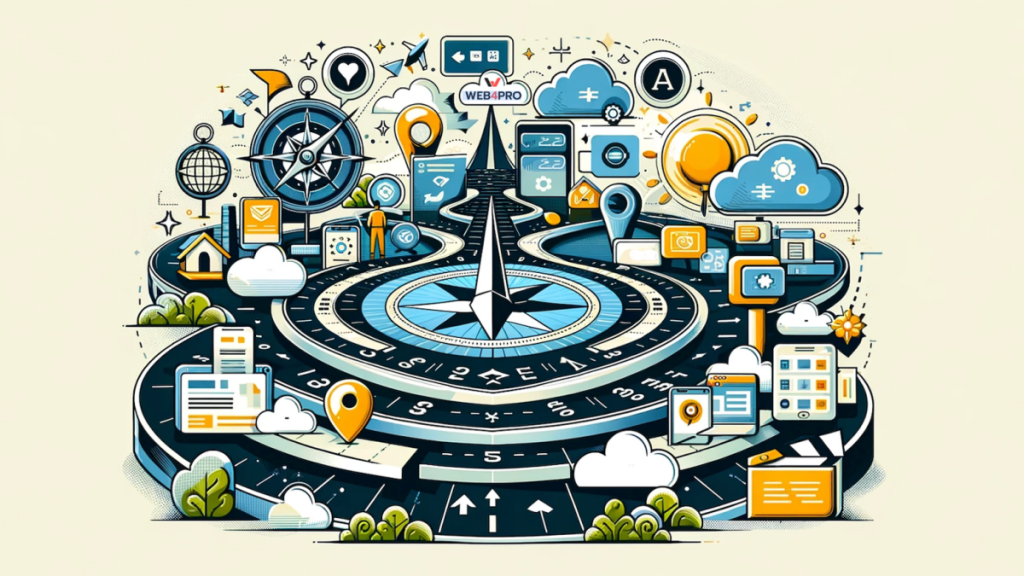In today’s digital-first world, selecting the right Content Management System (CMS) is a key decision for business owners aiming to establish or enhance their online presence. A CMS not only serves as the backbone of your website but also influences its functionality, user experience, and scalability. With numerous options available, the task of choosing the right one can seem daunting. To assist in this crucial decision-making process, we’ve consulted web development experts to highlight the main pros and cons of the most popular CMS platforms: WordPress, Shopify, Magento, and Drupal. This analysis aims to offer practical, specific advice to help business owners navigate their choices effectively.
WordPress
Contents
WordPress stands as the most widely used CMS worldwide, renowned for its versatility and user-friendly interface. It’s an open-source platform that’s ideal for blogs, small to medium-sized business websites, and even complex portals and e-commerce sites when integrated with WooCommerce.
Pros:
1. Ease of Use: WordPress is celebrated for its intuitive dashboard and easy content management, making it accessible for users of all skill levels.
2. Extensive Customization: With thousands of themes and plugins, WordPress offers unparalleled customization opportunities, allowing businesses to tailor their sites to their precise needs.
3. Strong SEO Capabilities: The platform provides numerous SEO tools that help businesses optimize their content and rank higher in search engine results.
Cons:
1. Security Concerns: Being the most popular CMS, WordPress is a common target for hackers, necessitating regular updates and security measures.
2. Performance Can Vary: Without proper optimization, WordPress sites can become slow, especially with excessive plugin use or shared hosting environments.
Shopify
This e-commerce platform is best suited for small to medium-sized online stores. It offers a comprehensive set of tools and features for managing an online store, including payments, inventory, and shipping.
Pros:
1.Quick start – with experienced developers, you can open an account on Shopify, fill in products (start package of them) and launch the store within 1-3 days.
2. User-Friendly: Shopify is designed for e-commerce, offering an intuitive setup process and easy management of online stores.
3. Integrated Payment Processing: The platform supports a wide range of payment gateways and includes its own (Shopify Payments), simplifying the transaction process.
4. Reliability and Security: Shopify provides hosting for your online store, ensuring high uptime, fast loading speeds, and secure transactions.
Cons:
1. Monthly Fees and Transaction Costs: The platform operates on a subscription model, which can get expensive with higher plans and additional transaction fees.
2. Limited Blogging and Content Capabilities: While primarily an e-commerce platform, Shopify’s blogging and content management features are less robust compared to dedicated CMS platforms.
Magento
Magento, now Adobe Commerce, offers a powerful, flexible platform for e-commerce businesses with complex needs and high volumes. It’s an open-source solution favored by medium to large businesses due to its scalability and extensive feature set.
Pros:
1. Highly Scalable: Designed to accommodate the growth of your business. Can handle large product inventories and customer databases efficiently without compromising performance.
2. Extensive Customization: With a wide array of themes and extensions, plus robust backend customization options, businesses can tailor their sites extensively.
3. Strong SEO Performance: Built with SEO efficiency in mind, it includes features that help enhance visibility in search engine results.
Cons:
1. Resource-Intensive: Magento sites demand robust hosting solutions, which can lead to higher operational costs.
2. Magento can be quite expensive, posing a significant investment for startups and small businesses.
3. Requires technical expertise and possibly a dedicated team to manage and customize effectively.
Drupal
Drupal is a highly flexible and powerful open-source CMS, ideal for complex, content-heavy websites and applications. It’s best suited for large businesses and organizations that require extensive data management and customization. Drupal excels in handling sites for governments, higher education, and large non-profits.
Pros:
1. Highly Customizable: Drupal offers a high level of customization through modules and themes, catering to complex website architectures and workflows.
2. Robust Security Features: It has a strong track record for security, making it a preferred choice for government and enterprise-level websites.
3. Scalability: Drupal excels in handling high traffic volumes and complex content structures, growing seamlessly with your business.
Cons:
1. Development Costs: Drupal development might be costlier than simpler CMS options, as it often requires more specialized skills and expertise.
2. Time-consuming: Customizations and integrations may require more development time.
The importance of choosing the web development agency
Equally important to choosing a CMS is choosing the right web development agency. The ideal partner offers extensive experience, comprehensive services, and a proven track record. As the digital landscape evolves, partnering with an agency that has a finger on the pulse of technological advancements can be a game-changer for your business.
Agencies like WEB4PRO, with over two decades in web development, provide valuable expertise in navigating CMS choices, customization, and ongoing maintenance. Also if you’re looking to improve your existing site, their team of experts can provide the guidance and execution needed to achieve your goals. Their consultations and technical proficiency can tailor solutions to resonate with your brand, engage your audience, and drive growth.
As the digital landscape evolves, partnering with a trusted agency ensures your website not only meets current standards but is poised for future growth and challenges.


